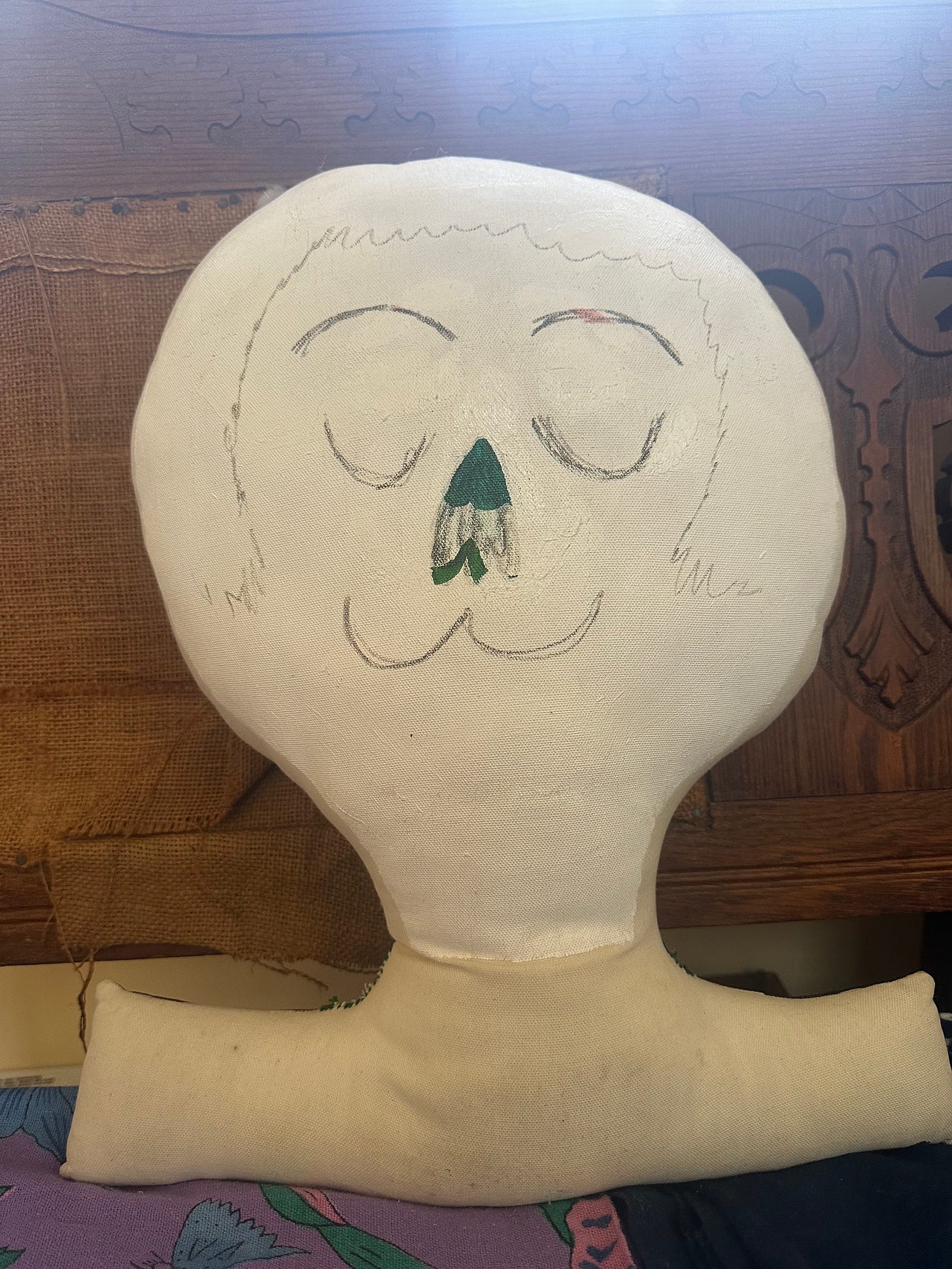Ask Me Later
Art by Cole Tucker-Walton
Ask me later.
Once I have had my coffee. Ask me then. Once I have gone on my walk. You can ask me then. After this mood passes. Try then. When I reach that age. Ask in a different way. When I’m more settled. That would be a good time. Once this is over. Try again. Once I’m gone. Ask me then.
The thing about aspirations is that they constantly remind us of what we have not yet attained, have not accomplished, have reached for, perhaps, but have not claimed. Once I have whispered to her what it is I hope to do, I immediately search her face for even the slightest twitch of disbelief or the eyebrow beginning to arch in a gesture of fond concern. I know her tells by now. A terrible poker player. How odd that she can’t help but smile when she is bluffing. She cannot hide what she feels, not for long anyway.
To aspire is to desire something more, something great, perhaps. To aspire is to breathe in. The two meanings complement one another. It might be good to think this way, I tell her. To look up and out to the width of the horizon and to simultaneously fill one’s lungs with enough breath to carry the through-line. I tell her, Aspiration cannot be pushed or neglected. It is neither passive nor desperate. She puts her hand over her mouth as if to stifle a giggle. I know, I know, I say back, a little triggered, it’s an idea until it’s a movement. Once it’s a movement, there’s no need to wax philosophical.
Still, Aspiration assumes a knowing, although, as she has told me many times, Aspiration can actually be a desire to know something more of itself, aspiring to aspire.
But I assure her, the assumption of wanting something more means I know something about that want. Or else how could I want more? More than what? More than this. Confusion is rarely confusion, I continue, it is clarity hiding under the blankets. If we are clear, we will have to take action. We would rather not. Confusion allows for passivity. She yawns. I watch her color change. The veil lowers so that only an impression of her personhood is left; her features are flattened. She is shutting down. It is involuntary. Aspiration creates pressure.
To act. To set out again. Birth after birth. To leave some relationships behind – relationships to others, to identities, to the world, to you. It is life. It is exhausting to be out of accord with the movement. Her eyebrow again lifts. She is suspicious. Always. She is reticent. I tell her I am tired. She shrugs. I explain that I have to go. Aspiration is a long silk scarf blowing in the wind. It is waiting.
I can’t leave her, of course. She knows that. Thank you, I say. Now, she wonders.
I am turning so that she can follow her natural movement, no longer interrupting her. I am letting her simply be as she is, already accomplished. I am making room so she can stand behind me; she does. I can feel her warm body against mine. She is resting, no longer afraid that I will ask something more. She presses her lower belly into my back, a portal, a passageway, a promise -- to and from.
Aspiration – both meanings – breathing in what has been and moving with it into the more.




